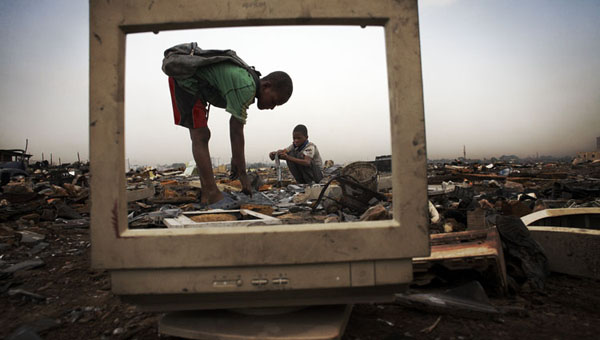
The most valuable natural resource to a society’s development is its ore of ideas.
Much more than a brand of esoteric entertainment, science fiction has long been a source of prophetic knowledge that has influenced the destiny of humankind. From 1984 (Orwell, 1949) to Neuromancer (Gibson, 1984), the course of history has continually been altered by the ripple effect of this unique brand of ideas on our immediate future.
Already a challenging art form, science fiction is rapidly growing in complexity in the age of high technology, as anyone imagining a future society is forced to explore the consequences of several new trends in innumerable disciplines interwoven through many layers of society. However, each accurate guess proves to be well worth the effort, to ever-increasing orders of magnitude.
Of course, future prediction is old business, having been pursued by the most inquisitive minds throughout human history, from ancient Greek philosophers to our contemporary career futurists. Yet, in the widening grey area between the document in a scientific journal and the novel on your bookshelf, there lies a multiplicity of universes begging to be explored.
Science fiction is a fragile network of bridges between the scientific world and the general public.
It is hardly an easy task to expose the many dynamic relationships between the lab and the street, and less so to fashion them together into a coherent, gripping piece of entertainment. But when well-executed, it allows the average person to grasp the critical underlying factors of these relationships and gain some skill in uncovering these patterns on their own.
Science fiction takes the thoughts of a few individuals and feeds them into the collective processing machine of an entire society. Instead of being confined to a roomful of academics, these ideas are freed into the Darwinian domain of coffee houses and dinner tables, to be prodded and picked apart from all angles until a refined vision resurfaces through natural selection.
Under the guise of entertainment, science fiction spearheads the formation of vital discourses into the complex cause-effect relationships between technology and social phenomena, sharpening the collective awareness of trends within a society. The more people are exposed to these trends, the more they are inspired to study them, and the more they aspire to influence them for the better.
You don’t know where you’re going if you don’t know where you’re from. Or is it the other way around?
Simply knowing what problems lie around the bend spurs the proactive development of solutions before those problems have time to take root. As we visualise what could be in our future, we gain insight to the implications of the actions we take today, putting our current reality into a grander perspective.
For instance, cyberpunk literature played a significant role in streamlining the regulation of information technology because of the huge discourse community that surrounded cyberspace as it was still in its infancy. The graphic detail in which cyberpunk described the possible abuses of the Internet provided specific objectives to achieve while guiding its development in the West.
This is likely the most recent example of a highly probable scenario being averted just as it began to materialise. There are lessons in here for Africa to learn, particularly as a disturbingly similar kind of situation shows signs of appearing on our continent. And the learning process begins with the simple dissemination of an idea.
A society without science fiction may be standing in the light, but is surely stepping into darkness.
It is clear that exposure to science fiction today has a significant impact on those who go on to build the societies of tomorrow. Had African leaders of the past been given a glimpse of the effects globalised technology would have on our geo-political landscape, we would most likely be living on a vastly different planet today.
As Africa marches onward into the future it is important that we as Africans begin to critically visualise the developments that will take place on our own soil. It’s not enough to import science fiction and translate it into the local languages. Our vision must be based on our own unique reality – cut from the cloth of our own societies and tailored to our specific needs.
It’s about time our youth had a realistic vision of their future, so they know exactly what paths to follow and can be prepared for whatever lies along the way. Africa desperately needs science fiction to expand the frontiers of the African thinker’s imagination, to free it from the past, guide it through the present, and follow it into an unbound future.
This blog first appeared on AfroCyberPunk, and is featured here by kind permission of the author, Jonathan Dotse. AfroCyberPunk, is a platform for exploring the possibilities that science fiction has to offer Africa and African literature
 SLiPStellenbosch Literary Project
SLiPStellenbosch Literary Project 